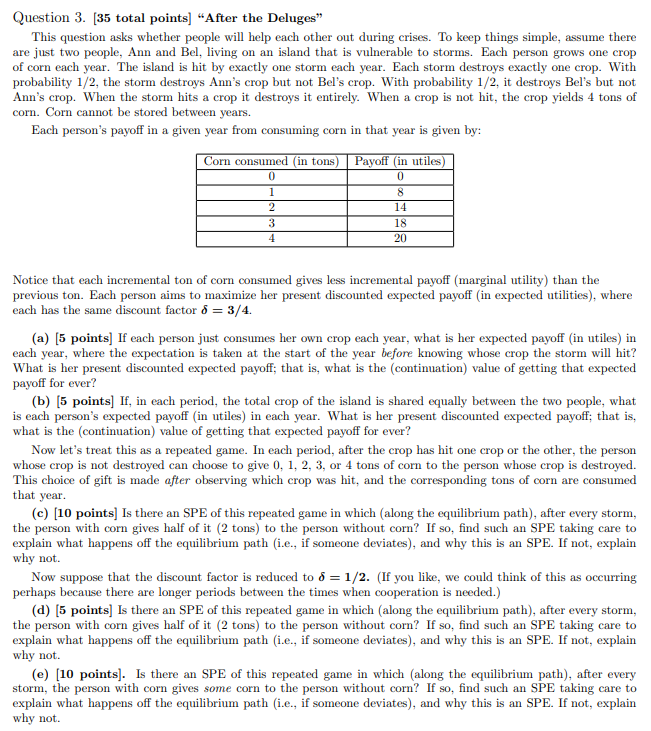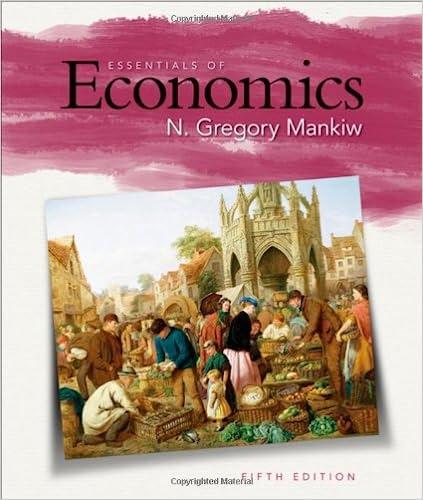................................
Question 3. [35 total points] "After the Deluges" This question asks whether people will help each other out during crises. To keep things simple, assume there are just two people, Ann and Bel, living on an island that is vulnerable to storms. Each person grows one crop of corn each year. The island is hit by exactly one storm each year. Each storm destroys exactly one crop. With probability 1/2, the storm destroys Ann's crop but not Bel's crop. With probability 1/2, it destroys Bel's but not Ann's crop. When the storm hits a crop it destroys it entirely. When a crop is not hit, the crop yields 4 tons of corn. Corn cannot be stored between years. Each person's payoff in a given year from consuming corn in that year is given by: Corn consumed (in tons) Payoff (in utiles) 0 8 14 3 18 20 Notice that each incremental ton of corn consumed gives less incremental payoff (marginal utility) than the previous ton. Each person aims to maximize her present discounted expected payoff (in expected utilities), where each has the same discount factor 6 = 3/4. (a) [5 points] If each person just consumes her own crop each year, what is her expected payoff (in utiles) in each year, where the expectation is taken at the start of the year before knowing whose crop the storm will hit? payoff for ever? What is her present discounted expected payoff; that is, what is the (continuation) value of getting that expected (b) [5 points] If, in each period, the total crop of the island is shared equally between the two people, what is each person's expected payoff (in utiles) in each year. What is her present discounted expected payoff; that is, what is the (continuation) value of getting that expected payoff for ever? Now let's treat this as a repeated game. In each period, after the crop has hit one crop or the other, the person whose crop is not destroyed can choose to give 0, 1, 2, 3, or 4 tons of corn to the person whose crop is destroyed. This choice of gift is made after observing which crop was hit, and the corresponding tons of corn are consumed that year. (c) [10 points] Is there an SPE of this repeated game in which (along the equilibrium path), after every storm, the person with corn gives half of it (2 tons) to the person without corn? If so, find such an SPE taking care to explain what happens off the equilibrium path (i.e., if someone deviates), and why this is an SPE. If not, explain why not. Now suppose that the discount factor is reduced to 6 = 1/2. (If you like, we could think of this as occurring perhaps because there are longer periods between the times when cooperation is needed.) (d) [5 points] Is there an SPE of this repeated game in which (along the equilibrium path), after every storm, the person with corn gives half of it (2 tons) to the person without corn? If so, find such an SPE taking care to explain what happens off the equilibrium path (i.e., if someone deviates), and why this is an SPE. If not, explain why not. (e) [10 points]. Is there an SPE of this repeated game in which (along the equilibrium path), after every storm, the person with corn gives some corn to the person without corn? If so, find such an SPE taking care to explain what happens off the equilibrium path (i.e., if someone deviates), and why this is an SPE. If not, explain why not







